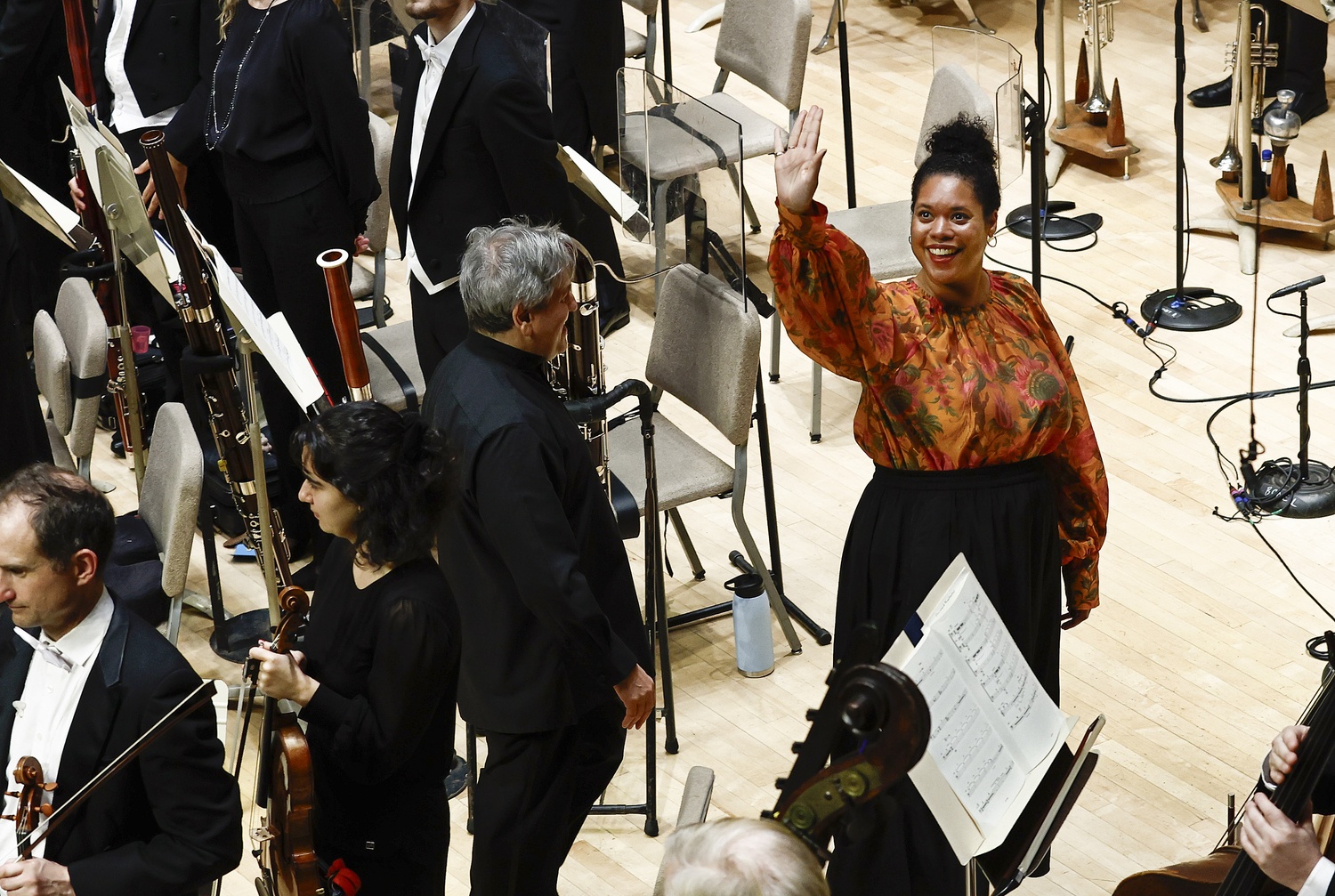
News
News Flash: Memory Shop and Anime Zakka to Open in Harvard Square

News
Harvard Researchers Develop AI-Driven Framework To Study Social Interactions, A Step Forward for Autism Research

News
Harvard Innovation Labs Announces 25 President’s Innovation Challenge Finalists

News
Graduate Student Council To Vote on Meeting Attendance Policy

News
Pop Hits and Politics: At Yardfest, Students Dance to Bedingfield and a Student Band Condemns Trump
BSO’s Strauss ‘Also Sprach Zarathustra’ Review: A Glorious Eternal Sunrise

From Oct. 24 to 26, the Boston Symphony Orchestra presented a concert featuring British composer Hannah Kendall’s “O flower of fire,” Richard Strauss’s “Also sprach Zarathustra” and Franz Liszt’s “Piano Concerto No. 2” with conductor Sir Antonio Pappano and pianist Jean-Yves Thibaudet.
The program opened with Kendall’s work making its U.S. premiere, with a special appearance by Kendall herself to introduce her work to the Boston crowd. Inspired by a poem by Guyanese poet and political activist Martin Carter in which he explores different creation stories from the different religions indigenous to Guyana, Kendall likened this experience to her own upbringing as the daughter of Guyanese immigrants in Wembley, London.
Her piece, dedicated to exploring creolization — the process by which new cultural expressions arise from the interactions between different communities — was an exquisite opener to the concert. The performance expanded the traditional European concert music soundscape through creative instrumentation and instrumental modification, such as accessorizing harp strings with dreadlock cuffs symbolic of people of African heritage, in an unprecedented display of tonal color and possibility. Incorporating harmonicas as instruments central to Afro-diasporic blues into a more conventional soundscape of flutes, brass, and strings, Kendall presented a piece that touched on the ineffable and sometimes jarring process of cultural mixing and recomposition.
Afterwards, French pianist Jean-Yves Thibaudet took to the stage for Liszt’s “Piano Concerto No. 2.” The BSO responded exceedingly well to Pappano’s conducting, leaning into the affect of Liszt’s tender and virtuosic piece. Thibaudet, donning a textured jacket, sparkly shoes and purple socks, was perhaps the living embodiment of Liszt had he been alive today, in an uncanny understanding of the composer virtuoso’s mercurial musicality.
While he most certainly could have shown greater musical interaction with the solo oboe and cello featured in this movement, he was at all times blissfully immersed in Liszt’s composition. For an encore, Thibaudet pulled out perhaps Liszt’s most famous work for piano: “Consolation No. 3.” The piece was a soothing and magical end following the fiery conclusion of the concerto, and Thibaudet was rapturously received by the Boston crowd.
Post-intermission, Pappano led the BSO in a tour-de-force performance of Strauss’s “Also sprach Zarathustra.” Inspired by Friedrich Nietzsche’s work of philosophical fiction by the same name, the piece has been immortalized for its iconic opening. Titled “Sunrise,” it was used in Stanley Kubrick’s 1968 film “2001: A Space Odyssey.”
The three-note rising figure was delivered convincingly by the trumpets and continued to morph throughout the whole work. Pappano commandeered the BSO wonderfully through the melodic motives, invoking some of the BSO’s most superlative playing. Delivering a glorious swath of sound throughout and bringing his operatic sensibilities and feel for drama to the stage, Pappano was perhaps the perfect conductor for this work. He clearly delighted in the more unexpected moments of the piece, such as the waltz section, and even the piece’s controversial ending, the ebbing B major chord undercut by persistent Cs from the bottom strings. Overall, he reveled in the piece’s majestic primeval connotations, summoning a truly elemental yet transfigured feel to Strauss’s masterpiece.
—Staff writer Lara R. Tan can be reached at lara.tan@thecrimson.com.
Want to keep up with breaking news? Subscribe to our email newsletter.
From Our Advertisers






HUSL seeks to create and empower a community of students who are seeking pathways into the Sports Business Industry.
